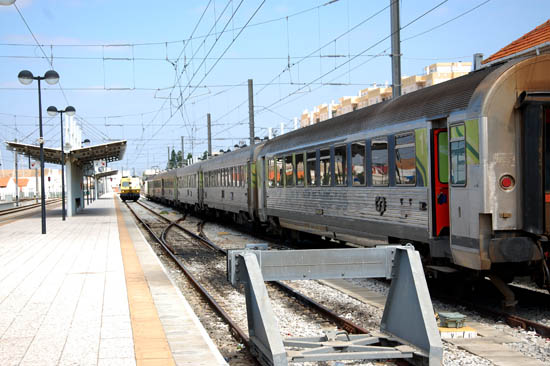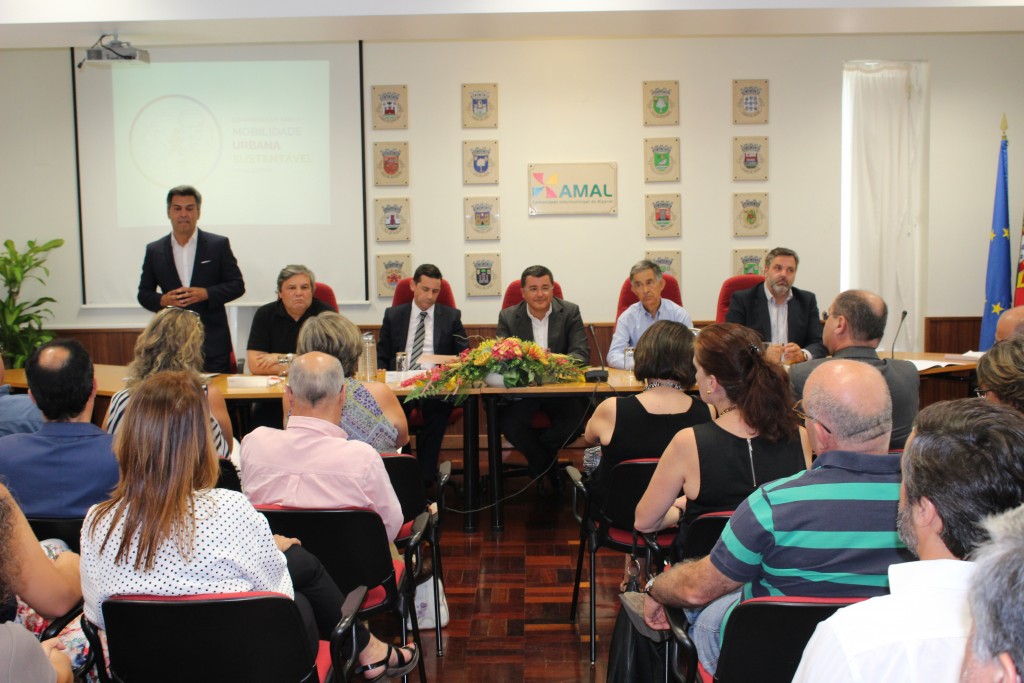 The management of the transport system in the Algarve will be carried out by AMAL – Comunidade Intermunicipal do Algarve. The entity that brings together the 16 Algarve municipalities assumed the leadership of a process that brings together several dozen entities, public and private, with the objective of improving mobility in the region.
The management of the transport system in the Algarve will be carried out by AMAL – Comunidade Intermunicipal do Algarve. The entity that brings together the 16 Algarve municipalities assumed the leadership of a process that brings together several dozen entities, public and private, with the objective of improving mobility in the region.
The most visible face of this collaboration is the Sustainable Urban Mobility Plan of the Algarve (PAMUS), launched earlier this week, following the signing of a Letter of Commitment for Sustainable Urban Mobility.
“Mobility is a historic problem in the region. Until now, we have never been able to come together to create a sustainable solution, at an inter-municipal, municipal and inter-parish level, and make things combine and marry, so that people can give up their private means of transport», he said. AMAL president Jorge Botelho, at the letter signing ceremony, which took place on Monday in Faro.
Hence, he considers the agreement that was signed on that day to be “a milestone for the region”. “I see here many regional leaders and many people with responsibilities, who think about the territory. I don't think anyone is missing,” said Jorge Botelho.
In fact, in the packed room there were representatives (in many cases, the highest officials) of the main transport operators in the region, such as CP, ANA Aeroportos, Eva, Frota Azul and Renex, but also companies from the most diverse sectors, Higher Education Institutions, namely the University of Algarve and ISMAT, and the main business associations in the region, among many others. The Commitment Letter was signed by 46 partners.
 Despite seeing the agreement as something important, Jorge Botelho warns that it does not mean that mobility in the region “will improve overnight”. What has been achieved, for now, has been an expanded platform for collaboration, unprecedented in the region.
Despite seeing the agreement as something important, Jorge Botelho warns that it does not mean that mobility in the region “will improve overnight”. What has been achieved, for now, has been an expanded platform for collaboration, unprecedented in the region.
Much of what will happen in the future will depend on PAMUS, whose first phase will involve mapping transport in the region. This will allow, "in the short term, the transport systems to start to function in an integrated way". But there is much more to be done to achieve the goal of sustainable mobility, not least because one of the concepts associated with it is zero carbon, something that requires another type of measure, which is more difficult to implement.
Some of the actions that are necessary may be suggested by the population, which is called to participate in this process. Following the launch of the plan, it was created the project «Vamus participate», which has the dual objective of raising awareness of sustainable mobility and asking for the contribution of citizens, through of filling out a quick survey (about 2 minutes).


















Comments